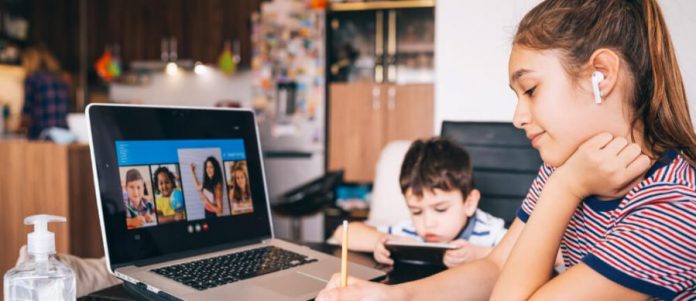“Education is the passport to the future, for tomorrow belongs to those who prepare for it today.”
Malcolm X
When I first heard about the concept called, Zoom. I thought about it and asked myself, is it a stereotype? Then, I learned that, it is something else. In addition, today throughout the whole world, it is the new normal classroom, or should I say meeting room. I do not think Zoom company thought of their bumper success in this period. When people are stuck at home, classroom have been placed to their computers screen or phone screen.
Let us focus on the new normal of our students that is online education. Online education is a type of educational instruction that is delivered via the internet to students using their home computers. The truth is, the education methods and materials provided in online degree programs are often the same as those provided for on-campus programs.
The question remains, is this platform helping our students? The reality is, today we all do not have internet access. So, for the students who live in remote places of the country, they are deprived of education in many cases. Still, we hear news about teachers being harasses at meetings. We hear facts about ignorance, irresponsibility and institutions charging extra fees in this situation. Is it worth enough?
For conducting online classes, some basic requirements must be available to the students and teachers. The first three primary requirements are digital devices, high-speed internet and a platform. Devices mean a personal desktop computer, laptop or at least a smartphone. Uninterrupted high-speed internet is also a primary necessity for online class, as the users have to stream online videos or live videos.
However, unfortunately, the global average mobile internet speed is 25.08 megabytes per second (Mbps) while it is only 9.06mbps in Bangladesh, according to a new report on online habits released by Hoot Suite and We Are Social.
Without high-speed internet, we might browse on the internet and use Facebook or Whats App but cannot stream live videos. The third necessary facility is a user-friendly platform or learning management system. There are many platforms available on the internet such as Google Classroom, Zoom, Moodle, etc. With a short training, students and teachers can use these platforms. This short training is also important for remote learning, as it requires a little bit of digital literacy of the users. Actually, if these three things can be ensured for both teachers and students then online class could be started.
But the main point is that whether these basic requirements are available to the students and teachers or not.
The Bangladesh Bureau of Statistics’ Multiple Indicator Cluster Survey 2019 shows that only 37.6 per cent of households in the country have access to internet. It also found that only 5.6 per cent of households have a computer. I have already said that only internet connection is not adequate for remote learning. It requires uninterrupted high-speed internet. Truly, we are yet to meet infrastructural requirements of online class for all students.
The policy makers need to address these issues to accommodate all the students or a large number of students will be left outside of the system. Government should take initiative to increase Internet facilities to tackle this new normal, and make all the citizens of the state capable of contributing for the country. Because, in this era, you need education above all.
There was a time, when online education was a myth. Many local authorities of our country rebuked it. But, this pandemic taught us a lesson, the significance of online education. For ensuring education for all, we need to rely upon this sector. We cannot send teachers to everywhere, but Internet gives us the scope to reach at the top of any mountain to the southern corner of rivers.
In these circumstances, we should be humble towards our teachers, because at the end they are taking our classes not for just money. Rather, they take care of ourselves. One day, we can again go back to our desks and chairs, for chasing our dreams. As Arthur Ashe said,
“Start where you are. Use what you have. Do what you can.”
Written by: Syed Al Farabi
Cultural Management Executive





